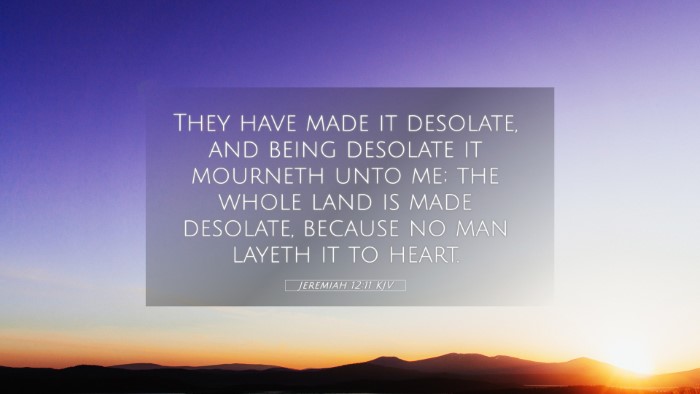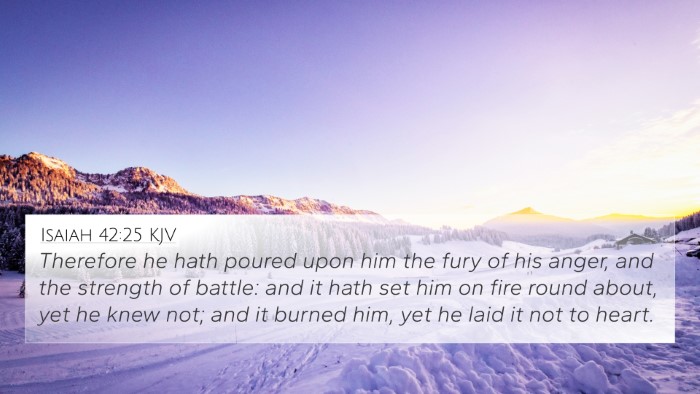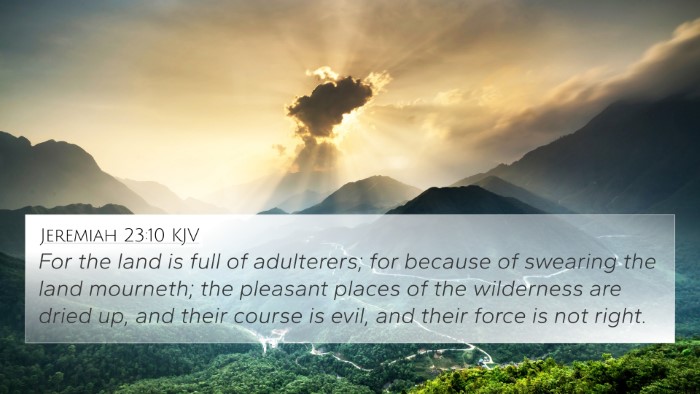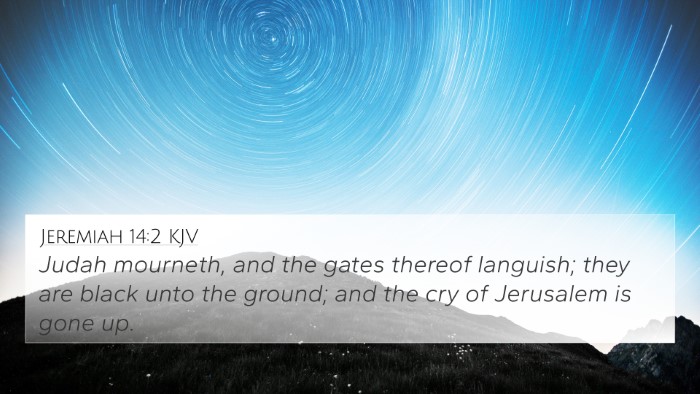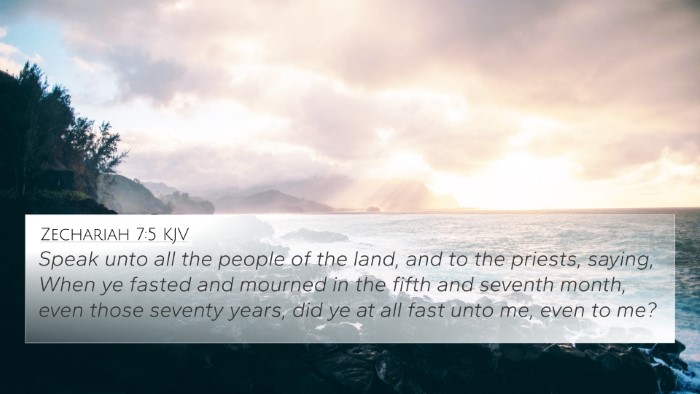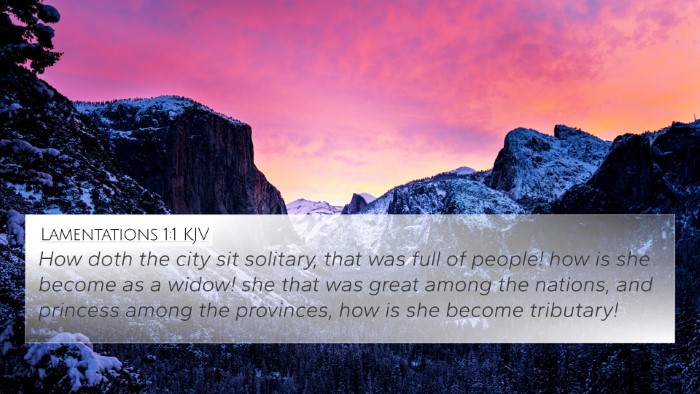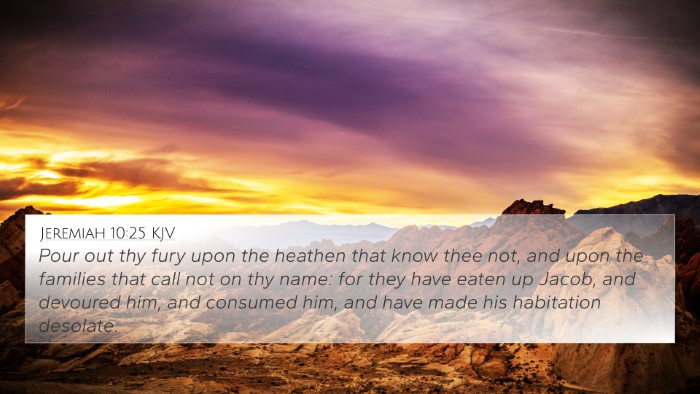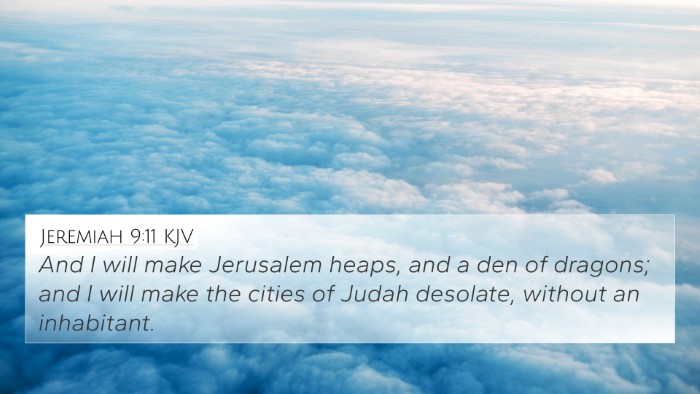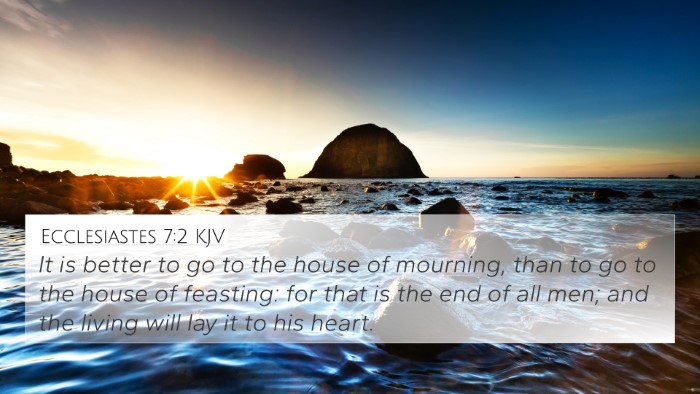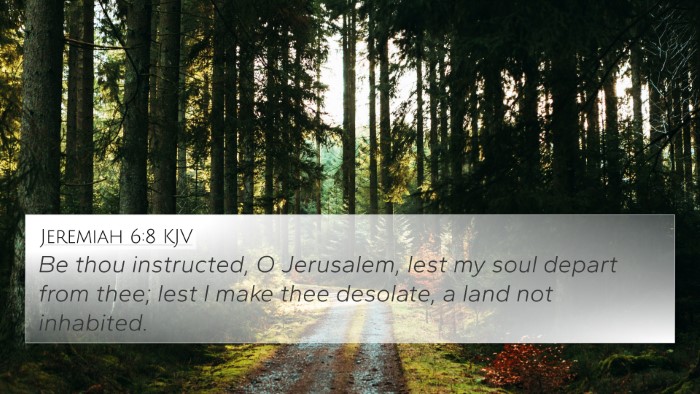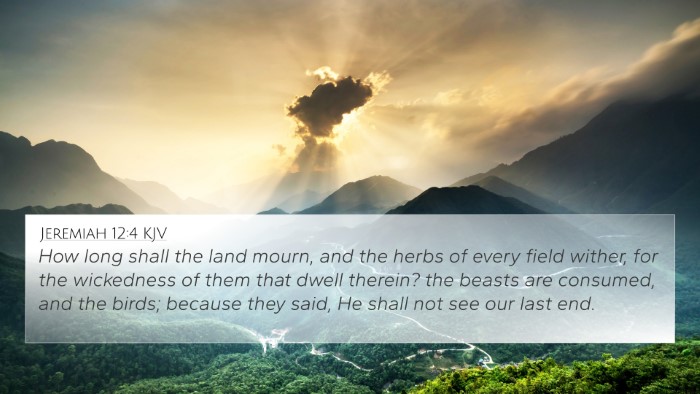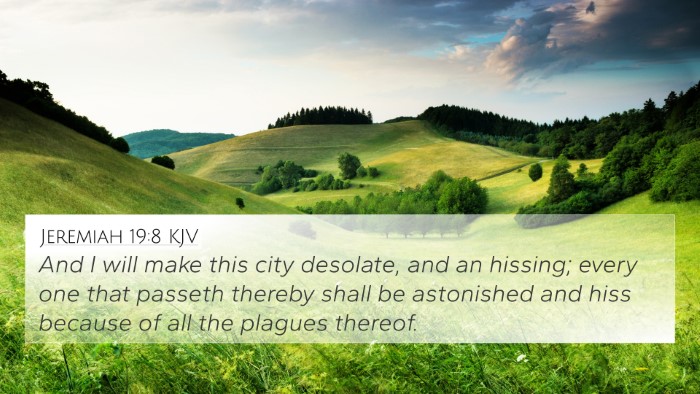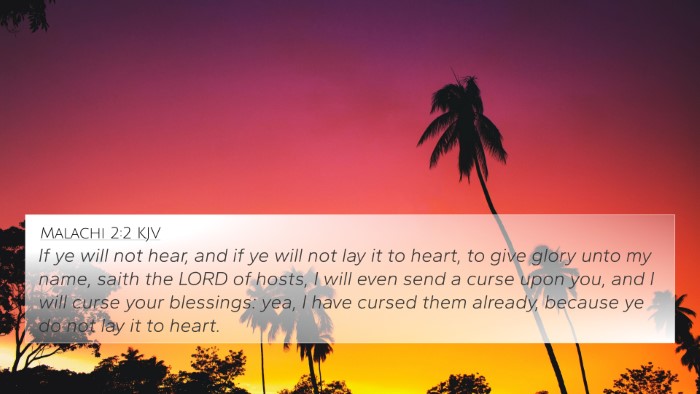Understanding Jeremiah 12:11
Jeremiah 12:11 states:
"They have made it desolate, and being desolate it mourns unto me; the whole land is made desolate, because no man lays it to heart."
This verse reflects the deep sorrow of the prophet Jeremiah regarding the desolation of the land of Judah, emphasizing the consequences of neglecting God's words and commandments.
Meaning and Interpretation
The verse illustrates not only the physical desolation of the land but also indicates a spiritual desolation among the people. The insights from various public domain commentaries help us comprehend this depth.
Insights from Commentators
- Matthew Henry: He emphasizes the sadness of God over the land's desolation, portraying God as lamenting over His creation. The lack of attention from the people to the spiritual decay leads to the physical ruin of the land.
- Albert Barnes: Barnes points out the mourning nature of the land, suggesting that the natural world reflects the sinful state of humanity. He argues that when humans forsake God, the resultant desolation is both literal and figurative.
- Adam Clarke: Clarke focuses on the need for the people to take heed to their actions. He highlights the urgency in their response to the divine warnings, indicating that neglecting spiritual duties leads to ruin.
Key Themes
The themes present in Jeremiah 12:11 correlate strongly with several overarching biblical concepts, which can be explored through cross-referencing.
Bible Verse Cross-References
- Hosea 4:3: “Therefore the land shall mourn, and everyone who dwells therein shall languish…” - This verse parallels the theme of the land mourning due to the people's sins.
- Isaiah 24:4: “The earth mourns and withers; the world languishes and withers…” - Showcases a similar sentiment regarding the earth’s relationship with humanity’s sin.
- 2 Chronicles 7:14: “If my people who are called by my name humble themselves…” - Emphasizes the need for repentance, illustrating a contrasting action that can prevent desolation.
- Ezekiel 18:30: “Therefore I will judge you, O house of Israel, every one according to his ways…” - Highlights individual accountability relevant to Jeremiah’s message.
- Matthew 23:37: “O Jerusalem, Jerusalem, the city that kills the prophets…” - Jesus expresses lament for the fate of Jerusalem, echoing Jeremiah's sorrow.
- Romans 8:22: “For we know that the whole creation has been groaning together…” - This New Testament verse connects the suffering of creation with human disobedience.
- Lamentations 1:4: “The roads to Zion mourn, for none come to the festival…” - This serves as a direct correlation with the idea of mourning in desolation.
Connections Between Bible Verses
The cross-referencing of these verses shows a thread of collective mourning for spiritual decay leading to physical consequences. They create a thematic dialogue across the scriptures that reinforces the importance of recognizing God's blessings and heeding His words.
Cross-Referencing Biblical Texts
Tools for Bible cross-referencing assist in identifying these connections, allowing deeper engagement with biblical texts.
Tools for Cross-Referencing
- Bible concordance
- Bible cross-reference guide
- Cross-reference Bible study materials
- Comprehensive Bible cross-reference resources
Thematic Bible Verse Connections
By employing methods such as comparative Bible verse analysis, readers can uncover layers of meaning that connect Jeremiah 12:11 to other texts within the Bible. Such analysis can enrich understanding and enhance spiritual growth.
Inter-Biblical Dialogue
The dialogue between the Old and New Testament is significant. Verses like Romans 12:2 call for transformation and renewal, which contrasts with the feelings of desolation found in Jeremiah 12:11.
Conclusion
In summary, Jeremiah 12:11 not only speaks to the historical context of the prophet's lament but also serves as a cautionary tale about the state of one's heart and the consequences of straying from God's path. The insights drawn from public domain commentaries, effective use of cross-references, and thematic connections form a robust understanding applicable for study and reflection.

